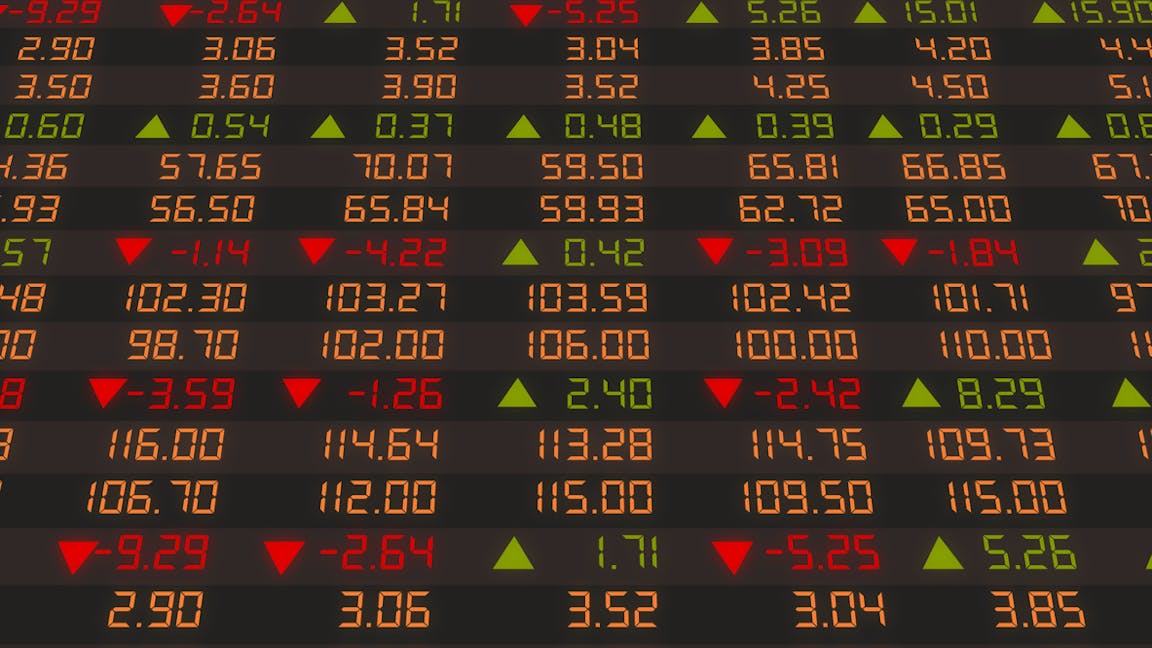
Exchange-traded funds (ETFs) and mutual funds have similar structures, are widely available to investors and each offer exposure to a range of different assets. They are even regulated in much the same way. So, why do we prefer ETFs at Nutmeg?
First, some definitions
A type of pooled investment, mutual funds invest in portfolios of assets, such as company stocks or bonds. Typically, the portfolios are specifically selected by the fund’s managers, who are often known as stock pickers.
In contrast, ETFs tend to invest according to rules. For instance, an ETF might hold the exact same proportions of stocks as found in a major stock index, such as the FTSE 100¹.
There are other differences too which we’ll come to later.
So, what’s the first reason why we prefer ETFs to mutual funds?
Stock pickers don’t pay their way
Put simply, we do not believe stock picking funds deliver good value for investors.
There is very strong evidence for this. In its latest scorecard on the topic, S&P Dow Jones Indices, a financial data provider, calculated that 74% of UK stock-picking funds underperformed their benchmark over ten years. For US funds, the figure was as high as 88%².
Because the majority of fund managers fail to beat their benchmark, we think the fees charged by these funds cannot be justified.
ETFs are different. If an ETF aims to mirror the FTSE 100 index, then providing the ETF is well managed, its return will closely track the return of that index.
In other words, ETFs deliver on their promise, which is one reason we think they offer better value than mutual funds.
ETFs have one fee for everyone
Unlike mutual funds that may favour bigger investors through lower priced share classes, ETFs have only one fee for all investors. Because ETFs invest very efficiently, without employing fund managers to do stock picking, this fee tends to be low.
That means that with an ETF, the returns, after fees, are the same percentage for every investor. It doesn’t matter whether you own one share in an ETF or a hundred thousand shares – you pay the same management fee on each share as everyone else and receive the proportion of the returns.
You could say ETFs are a “democratic” type of investment. Given that Nutmeg is on a mission to democratise wealth management, this is something we like.
With ETFs, you always know what you own
ETFs are much more transparent than most mutual funds. ETFs publish their holdings daily, meaning you know exactly what they hold – every security, sector and country. This transparency helps investors to manage risk and establish the fund’s fair price.
In contrast, in the UK it’s not unusual for mutual funds to disclose their holdings only on a monthly or bi-monthly basis. Fund providers usually say this practice is meant to protect their “secret sauce”; the precise mix of stocks in their portfolio. But an unfortunate consequence of this approach is that investors in the fund may struggle to understand what risks they are exposed to.
Take, for example, the case of Argentina in emerging market equities funds. In August 2019, an unexpected result in the country’s election caused the Argentinean equity market to fall by nearly 40% in 24 hours³. Lacking up-to-date information on underlying holdings, investors in stock-picking funds were left to fret over what allocation their managers had decided to give to Argentina, and what the performance impact could be.
In contrast, ETF investors could easily check their exposure to Argentina on the day of the election. Everything was clear for all to see, with no nasty surprises.
A secondary market makes trading ETFs easy
Shares in ETFs can be sold and bought by investors, just as the underlying securities can. This is because they are themselves listed on an exchange, in the same way as a listed company stock.
In contrast, units of a mutual fund can only be purchased and redeemed with the fund provider, which may need to sell underlying securities to raise cash for redemptions⁴.
We think the settlement process is one of the biggest weaknesses of the mutual fund industry, because it is a fundamentally inefficient way to operate.
Let’s look at an example. An investor requests a large redemption from a fund. The fund does not have sufficient cash reserves to meet the request, so the fund manager sells some of its underlying securities to raise the necessary money. Let’s assume that in a week’s time, a different investor wants to invest the same amount that was just withdrawn. The fund manager must now repurchase the securities it has just sold. Selling and repurchasing securities like this is inefficient and incurs needless transaction fees, among other costs.
Can you imagine a business such as a car dealership behaving like this? Instead of trading intact cars, the dealership would constantly dismantle its vehicles, sell the parts and then buy the parts back again when it wants to sell another car. It wouldn’t make sense.
A secondary market for ETFs gives investors the option to sell their ETF shares to other buyers in the market – in addition to the option to redeem them with the ETF manager. This choice and freedom can be important in different market conditions. It also gives flexibility and can be tax-efficient⁵.
ETFs are the next evolution of mutual funds
With more than 1,000 ETFs listed in London alone, these instruments are the perfect choice for investors, such as us, who are focused on asset allocation⁶.
In fact, we believe ETFs are superior to conventional mutual funds in almost every way. They are more transparent, meaning investors can see exactly what risks they are exposed to; they offer flexibility in trading, so that investors can easily buy and sell them in a liquid marketplace without the need for fund providers to incur unnecessary transaction costs; and they are low cost, which means investors get to keep more of their money, instead of seeing it leak away in fund management charges.
Because we believe in ETFs, Nutmeg is dedicated to continual innovation to help our customers maximise their benefits. For example, we were the first wealth manager to launch fractional share trading for ETFs in Europe, improving diversification and reinvestment opportunities for all clients, no matter what your level of wealth.
Thanks to our use of ETFs, our clients enjoy investment opportunities, diversification and cost savings that would normally be unattainable to individuals. ETFs are an essential part of our mission to democratise wealth management – that’s why we prefer them to mutual funds.
Sources
- Some mutual funds also invest in indices rather than portfolios chosen by stock pickers. These funds are often called either index funds or tracker funds. Index funds share some of the cost benefits of ETFs but generally cannot be traded on a secondary market, like ETFs can. See the section, “the secondary market”, for more information.
- 2019 S&P Dow Jones Indices SPIVA Mid Year Scorecard for US, Japan & Europe. Data as at 30/06/2019.
- MSCI Argentina index in USD, 09/08/19 to 12/08-19, Bloomberg
- ETF units can also be purchased and redeemed with the ETF provider.
- In stock markets such as the UK, where there is a tax on purchases of UK equities, many investors choose to trade ETFs in the secondary market where no tax exists. This is one reason why UK equity ETFs are often favoured to their equivalent index or tracker funds.
- There are more than 1,100 ETFs and 480 ETC/ETNs [exchange-traded commodities/notes] listed on the main market of the London Stock Exchange.
Risk warning
As with all investing, your capital is at risk. The value of your portfolio with Nutmeg can go down as well as up and you may get back less than you invest. Past performance is not a reliable indicator of future performance. Tax treatment depends on your individual circumstances and may be subject to change in the future.
